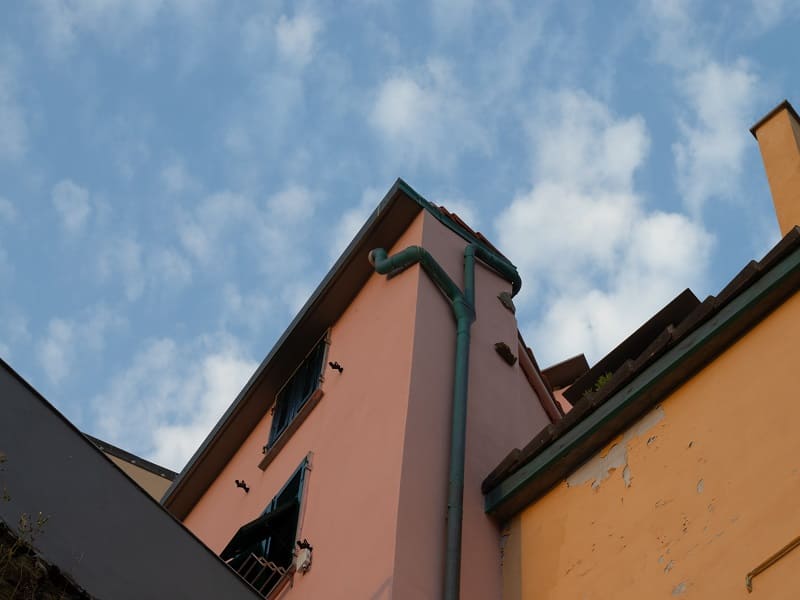What Are the Pros and Cons of Gutter Guards: An Insight!
Discover the pros and cons of gutter guards in this insightful blog. Make an informed choice for your home's maintenance!
Gutters, while sometimes disregarded, are vital to the safety of your house. They direct water away from the home, reducing the risk of flooding, erosion, and leaks. However, obstructions in gutters caused by leaves, twigs, and other debris may lead to various issues.
Here come the saviors—gutter guards! These ingenious devices filter away trash without restricting water flow. They guarantee to shield your gutters from damage and save you from having to clean them as often, much like a superhero cape.
But do you believe they'll save your gutters? Gutter guards, like any superhero, have both strengths and drawbacks. Let us look at the pros and cons of gutter guards to make an informed decision.
Pros of Gutter Guards: Enhancing Your Gutter System
Gutters are the hidden heroes of our houses because they prevent water damage to our foundations, walls, and landscaping. However, they need certain safeguards, such as gutter guards, to continue functioning correctly.
These seemingly innocuous devices have many purposes, all of which contribute to the reliability and durability of your gutters.
1. Longer Lifespan of Your Gutters
Protecting your gutters from debris buildup is the primary function of gutter guards. If your drains are blocked, water will pool and eventually stagnate, which may lead to early rusting or decay.
Gutter guards prevent gutters from being clogged with debris, extending their useful life. They guarantee that the channels will be able to divert rainwater away from your house as intended.
2. Reduced Need for Repairs
Gutter guards' low maintenance requirements are a significant benefit. If you don't have gutter guards, you must clear your gutters often to prevent clogging by leaves, twigs, and other debris.
Gutter guards reduce how often you need to do this, which saves you time and energy. It reduces the need for gutter cleaning, saving time and money.
3. Prevents Pest Infestations
You should install gutter guards to prevent insects from making your gutters their new home. Insects, rats, and even birds may find refuge in clogged drains. These pests may wreak havoc on your gutters by building nests and causing structural damage.
Protecting your gutters from pests and debris is one way to provide a more hygienic and secure home environment.
4. Enhanced Water Flow
When you install gutter guards, water flows more efficiently through them. They ensure the gutters and downspouts are clear of obstructions, allowing rainfall to flow without delay.
A home's façade, landscape, and foundation are vulnerable to water damage, but increased water flow may help avoid this. The guards allow for efficient drainage, which protects your home's foundation by directing precipitation away from it.
5. Prevents Foundation Damage
The structural integrity of your property is at risk if water cannot flow away from the foundation because of clogged gutters.
Water that cannot drain properly because of clogged gutters may seep into the soil close to the foundation, leading to erosion and, eventually, fractures and damage.
Protecting your home's foundation from water damage, gutter guards keep water flowing freely and away from your roof. This preventive action is an investment in the future that might save you a lot of money on maintenance and repairs.
Cons of Gutter Guards: Understanding Limitations and Downsides
The so-called "superheroes" of the guttering world, gutter guards, are not without their own unique set of difficulties. They can prevent obstructions and pests but also have undesirable side effects.
Let's look at the downsides of installing a gutter guard and see whether they outweigh the benefits.
1. Initial Cost
The initial cost of installing gutter guards is a significant deterrent for many homeowners. Gutter guards need an upfront investment, which includes the cost of the guards themselves and, perhaps, the cost of hiring a professional to install them.
Gutter guard costs vary depending on the size of your home and the kind you choose. They may be more expensive initially but may save you money on repairs and upkeep in the long run.
2. Problems During Setup
Gutter guard installation requires some skill. Meticulous preparation and attention to detail help achieve a correct fit and maximum efficiency. Some homeowners may choose to hire a professional installer because of the perceived difficulty of the task.
Professional installation assures a faultless setup but comes at an additional expense. Do-it-yourself installation is possible, but it takes practice and expertise to do well.
3. Limited Efficiency in Severe Downpours
Gutter covers may not work as well in extreme weather. They may be unable to handle the volume and intensity of water during intense rainfall, but they do an excellent job of keeping out leaves and more considerable debris.
Because of this, water may flow around or over the guards. An adequate gutter size and regular inspection and maintenance of the guards may prevent this from happening, especially during periods of high rainfall.
3. Accumulation of Debris
Gutter guards may become dumping grounds for trash. Seeds, pine needles, and shingle granules are tiny particles that may accumulate on top of the guards and impede water passage.
Regular maintenance is necessary to ensure that the guards are functioning correctly. This job requires less frequent maintenance than standard gutter cleaning.
4. Visibility and aesthetics
The aesthetics of your property may change if you install gutter guards. Depending on the design, your gutters might look different from the outside. Low-profile choices exist, but this is still a worry for those who care about their home's curb appeal.
However, choose a gutter guard style that works well with your home's façade and meets your practical needs.
How to Maintain Gutter Guards?
Despite the gutter guards' pros and cons, you must maintain them to increase their life. Maintain your house's first line of protection and fix any broken gutter guards. The following simple maintenance procedures will ensure their optimal performance:
Routine Maintenance:
Even while gutter guards make it so you don't have to clean your gutters as often, they still need periodic upkeep. It's essential to clean up your gutters regularly, but it's vital after storms and in the fall when leaves are plentiful. It just takes a quick brush or rinse to make it look new.
Trim Nearby Trees:
It could be a good idea to prune back any branches hanging low. The amount of rubbish that lands on the gutter guards after blowing onto the roof will decrease.
Check for Rust or Damage:
Check your gutter guards for corrosion and any other signs of deterioration. If you find an issue, correcting it will prevent it from becoming worse.
Gutter Guard Design:
Choosing gutter guards that can be easily removed and cleaned is recommended for your convenience. Choose a layout that suits your comfort level with regular cleaning and upkeep.
Professional Inspection:
Getting an expert opinion is sometimes wise to ensure everything runs well. Gutter Guards can spot problems that you may have overlooked.
Conclusion:
There are many pros and cons of gutter guards. Gutter guards provide several advantages, including extending your gutters' life, decreasing maintenance frequency, preventing pests, and safeguarding your home's foundation. These perks act as a shield, preventing harm to your house and providing you peace of mind.
But gutter guards aren't bulletproof either. Potential skepticism may arise from the high price tag and complex setup process. Heavy rains make it difficult for them to keep up; strangely, they may accumulate debris.
Protect your home from debris with gutter guards, the reliable companion of your gutters.




Leave a comment
This site is protected by hCaptcha and the hCaptcha Privacy Policy and Terms of Service apply.